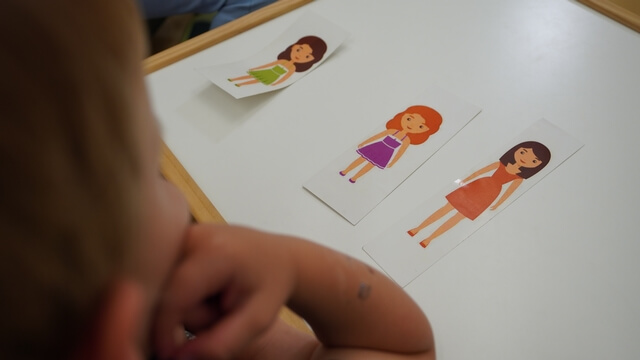Research Objective
Effects of mobile devices on the cognitive skills of preschoolers
In a recent study we investigated whether preschoolers who use mobile touch screen devices (tablet, smartphone) regularly and those who do not use these devices are different in certain cognitive, emotional or fine motor skills.
Owing to their usability, tablets and smartphones are used by an increasingly greater number of children and at an increasingly younger age. As the use of these devices takes time away from other activities (like social activities, play, etc.) yet offer a different type of sensory and motor stimulation than traditional games, such use may influence attentional and emotional development.
We invited 4.5-6 year-old children with their parents to participate in our study: 20 of whom were frequent tablet/smartphone users and 20 of whom did not use such devices. We gave children playful tests which measured attentional, social-emotional and fine motor skills.
According to our results, children who use mobile devices find it more challenging to understand the perspectives of others compared to their peers who do not use such devices. This may be because the use of mobile or tablet devices takes away time from social activities and symbolic or role-playing activities, which are essential for the proper development of these social skills.
Additionally, we found that children who use mobile devices extensively exhibit a different type of attentional processing compared to non-mobile users or to what has been found in previous studies in children and adults (that is, the “typical” processing in earlier eras). While it is generally characteristic for people (both children and adults) to observe an entire figure first and then focus on details, children using mobile devices tend to notice details first. This difference may be due to the fact that on digital screens, we usually don't see the whole picture at once; scrolling or flipping is required to grasp it. This could train our brains to pay more attention to details.
Konok, V., Liszkai-Peres, K., Bunford, N., Ferdinandy, B., Jurányi, Z., Ujfalussy, D. J., … Miklósi, Á. (2021). Mobile use induces local attentional precedence and is associated with limited socio-cognitive skills in preschoolers. Computers in Human Behavior, 120(December 2020). https://doi.org/10.1016/j.chb.2021.106758
